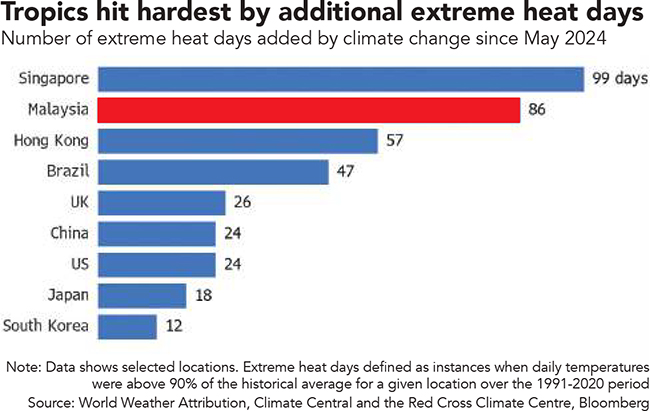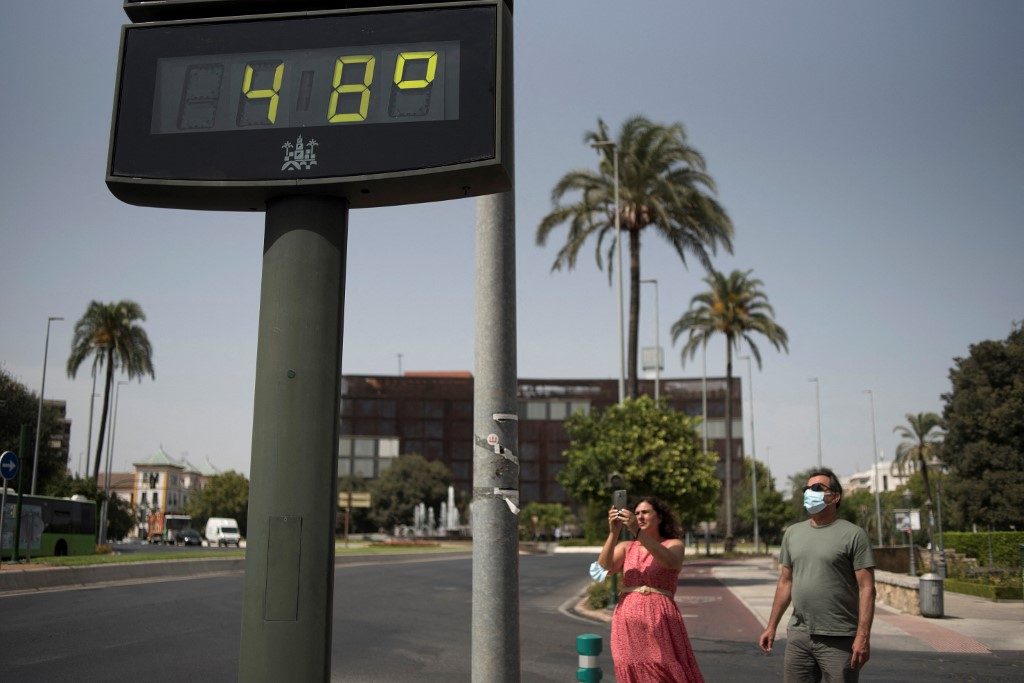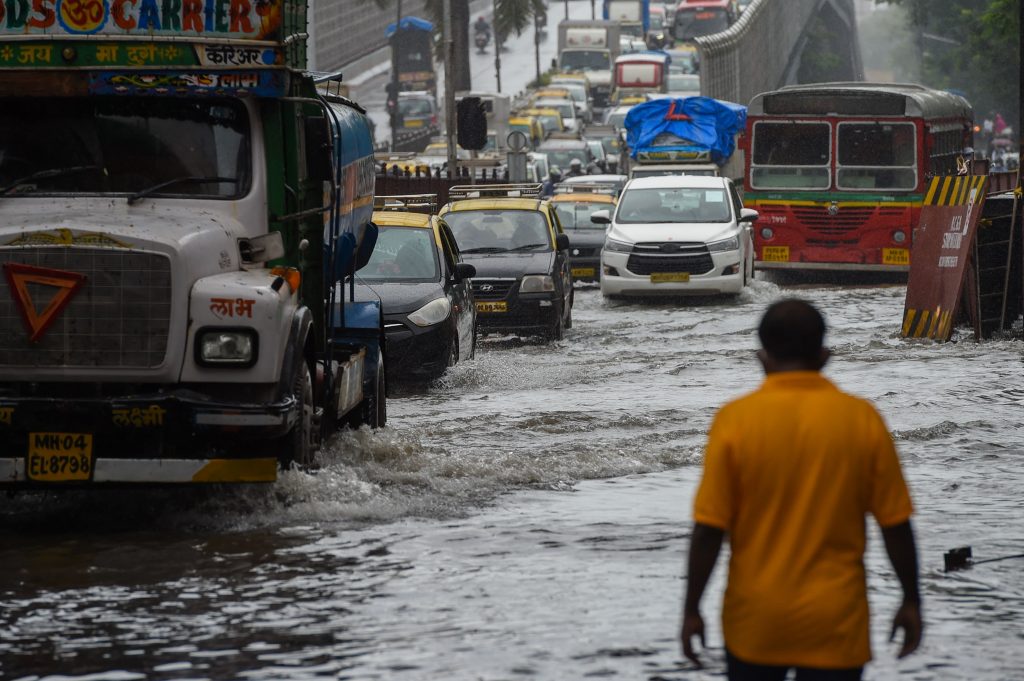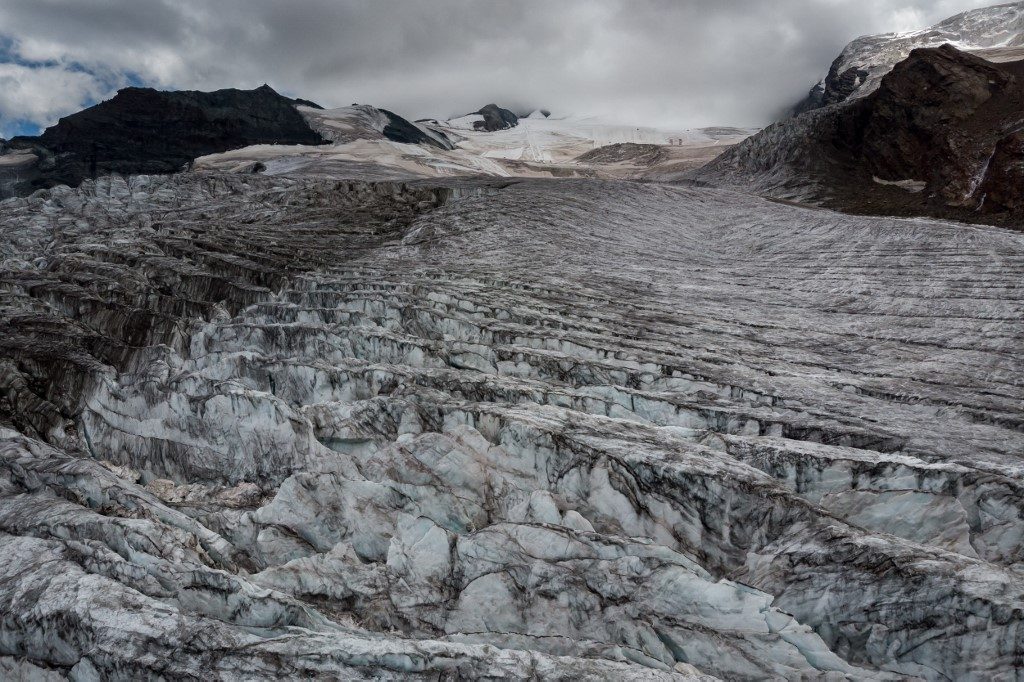
FOUR billion people experienced at least 30 additional days of extreme temperatures over the past year as a result of climate change, with nations in the tropics the most severely impacted, according to a new study.
Indonesia and Singapore have both recorded an additional 99 extreme heat days since May 2024 when compared to a scenario that stripped out the impacts of global warming, researchers from London-based World Weather Attribution, US nonprofit Climate Central, and the Red Cross Climate Centre found. Barbados, Haiti and a number of other Caribbean and Pacific Island states and territories each had more than 120 extra hot days.
Scientists defined extreme heat days as instances when daily temperatures were above 90% of the historical average for a given location, aiming to gain better insight into conditions experienced locally rather than by making comparisons to worldwide averages.
Last year was the hottest ever recorded, and the period studied in the report covered several severe heatwaves, including in the south-west US last June, across southern Europe the following month, and through central Asia this March.

Periods of extreme heat disproportionately impact vulnerable populations, including older adults, low-income communities and pregnant people, the study said. There are frequently also negative effects on agricultural productivity, water availability and energy infrastructure.
Of the 247 countries and territories analysed in the study, those with the highest number of additional extreme heat days were overwhelmingly in regions closest to the equator.
“Temperatures are less variable in the tropics than in the mid-latitudes, which means that the climate change trend is emerging more clearly in tropical regions,” said Clair Barnes, a research associate at Imperial College London and member of the World Weather Attribution group. That means those regions will more likely experience extreme heat, she said.
Small island states are among the most exposed to and least prepared for climate risks, and saw the starkest increase in extreme heat days during the period studied. That’s because “the oceans surrounding them tend to hold heat for a long time, keeping temperatures higher in what would previously have been cooler months,” Barnes said. — Bloomberg
- This article first appeared in The Malaysian Reserve weekly print edition
RELATED ARTICLES

UN hot on the trail of temperature records

Heatwaves kill coral reefs far faster than thought: study

Earth’s temperature likely marks hottest decade on record: report

Heatwaves from the Arctic to Japan — a sign of things to come?

The Heat, Floods and Fire We Don’t Hear Enough About

Swiss mountain pass set to lose all ice within weeks
The post Extreme heatwaves are longer and hitting the tropics hardest appeared first on The Malaysian Reserve.
